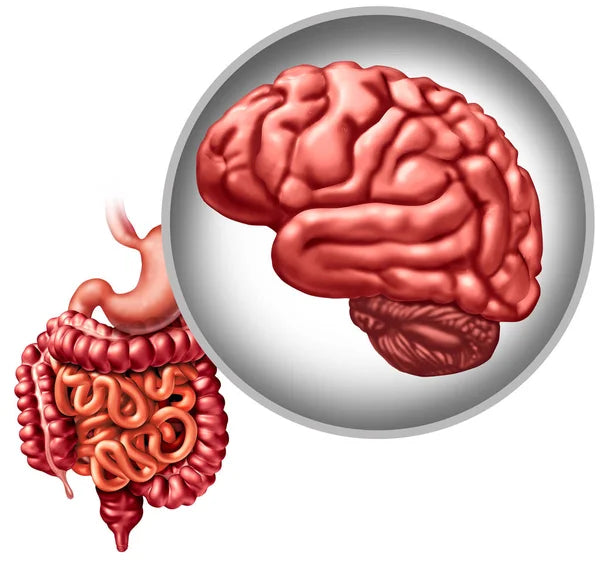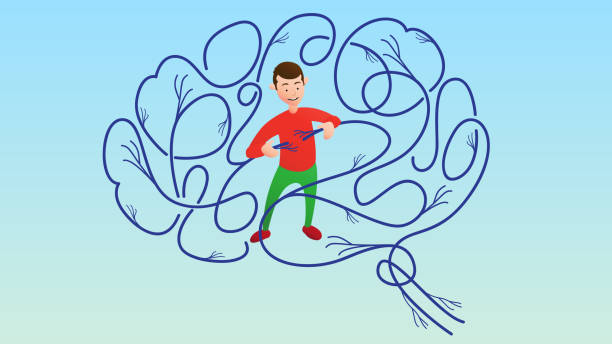
The Gut-Brain Connection: How Probiotics Impact Mental Health and Alzheimer's Disease
Imagine a future where a simple and accessible solution could potentially impact our mental well-being and even slow down the progression of Alzheimer's disease. This future may not be too far off, thanks to the emerging field of psychobiotics. Probiotics, those tiny live microorganisms with the power to positively influence our gut microbiota, are showing promise in their ability to impact our mood, cognition, and mental health. But the potential of probiotics doesn't stop there. Recent research suggests that they may also have a role to play in the complex puzzle of Alzheimer's disease. By modulating inflammation, regulating neurotransmitters, and potentially aiding in the clearance of amyloid beta plaques, probiotics could become a valuable ally in our fight against neurodegenerative disorders. Let's delve deeper into the fascinating world of psychobiotics and explore how these remarkable microorganisms are revolutionizing our understanding of the gut-brain connection and offering hope for a brighter future in mental health and Alzheimer's research.

The Unsung Heroes: Caregivers in the Battle Against Alzheimer's and Their Unspoken Struggles
Caregivers face significant emotional, financial, and physical challenges, with a large proportion being older adults or daughters. The financial burden falls heavily on families, and caregivers often experience unspoken struggles. The blog emphasizes the importance of recognizing and supporting caregivers, offering practical assistance, sharing resources, and advocating for supportive policies. By standing with caregivers and expressing gratitude for their tireless efforts, we can make a meaningful impact in their lives and contribute to the fight against Alzheimer's.

Sleep and Your Brain: The Importance of Quality Rest
In our fast-paced modern world, sleep often takes a backseat to our hectic schedules and endless to-do lists. However, what many of us fail to realize is that sleep plays a vital role in our cognitive function and overall well-being. From memory consolidation to problem-solving and emotional regulation, our brains rely on quality rest to perform at their best. Establishing a relaxing bedtime routine, creating a sleep-friendly environment, and avoiding electronic devices before bed can significantly enhance our sleep quality. By prioritizing restful sleep, we invest in our brain's health and unlock the incredible power of a well-rested mind.

Mindful Meditation: Nurturing Your Brain and Reducing Stress
In today's fast-paced and stressful world, finding effective ways to nurture our brains and reduce stress is crucial. Mindful meditation offers a powerful solution. By dedicating a few minutes each day to this ancient practice, we can experience a range of benefits, including improved cognitive function, reduced stress and anxiety, increased emotional well-being, and even enhanced brain plasticity. Simple mindfulness exercises like breath awareness and body scans can be incorporated into our daily routines with ease. Additionally, there are numerous resources available, such as meditation apps and guided meditation videos, to support and deepen our meditation practice. Embracing mindful meditation is a transformative step towards nurturing our brain health and finding inner peace amidst the chaos of life.

Shedding Light on National Alzheimer's and Brain Awareness Month
Welcome to our blog where we shine a spotlight on National Alzheimer's and Brain Awareness Month. Join us as we delve into the significance of this important observance, aimed at raising awareness, promoting brain health, and supporting individuals and families affected by Alzheimer's disease and other forms of dementia. Discover the power of the color purple, learn about engaging activities you can participate in, and explore the impact of advocacy and research. Together, let's illuminate the path towards a brighter future in the fight against Alzheimer's and dementia.

Debunking Common Myths About Serotonin
Understanding serotonin's role in mental health is essential, but it's crucial to separate fact from fiction. Serotonin is a complex neurotransmitter involved in various bodily functions, including mood regulation. However, it is not solely responsible for happiness, nor is low serotonin the sole cause of all mental health issues. By dispelling these myths, we can foster a more accurate understanding of serotonin's role and pave the way for a comprehensive approach to mental well-being.

Unveiling the Power of Vitamin D: Shedding Light on its Crucial Role, Sources, and Benefits for Sun-Deprived Individuals
Vitamin D is a fat-soluble vitamin that is produced by the body when the skin is exposed to sunlight. It can also be obtained from certain foods, such as fatty fish, egg yolks, and fortified dairy products. Vitamin D is essential for the absorption of calcium and phosphorus, which are critical for maintaining strong bones and teeth. It also plays a role in immune system function and can help reduce inflammation in the body.

Understanding Adaptogenic Supplements
Exploring adaptogenic herbs and their ability to help the body manage stress, improve resilience, and restore balance.
